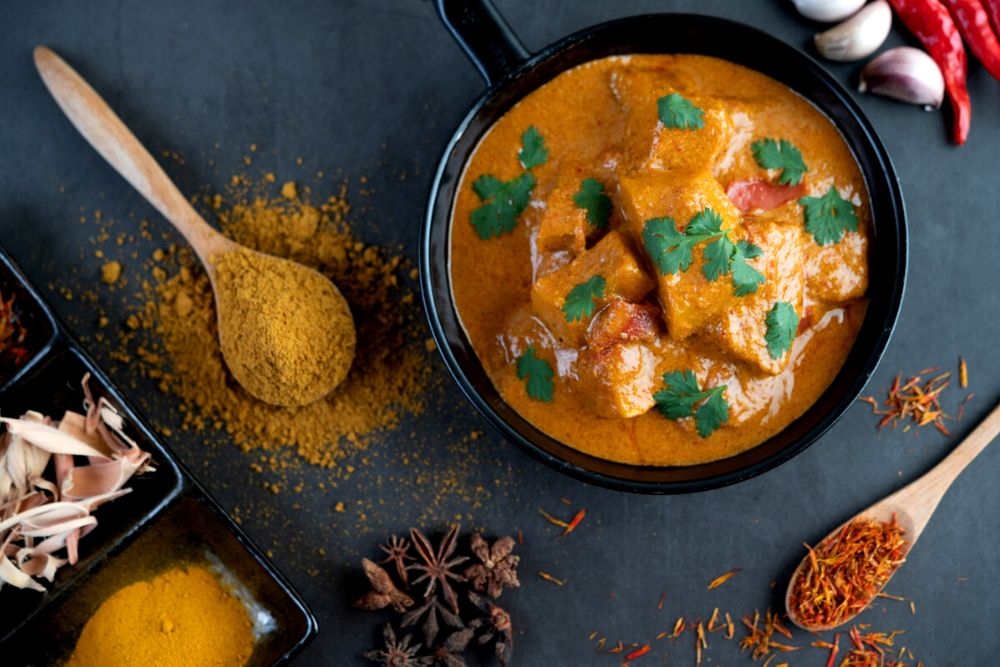Here’s a culinary fun fact: Curry is not a single spice or even a set group of spices…it’s a dish! Most notably, curry is a sauce or gravy common to Indian cuisine. Every region of India (and other Southeast Asian countries) has a unique presentation of curry dishes based on a people’s history, the availability of spices, geography, and cultural preferences.
Today, curry dishes are enjoyed by people all around the world not only for their robust flavor but also for the medicinal benefits of one of the most commonly used curry spices: turmeric. This herb is well-known for its anti-inflammatory properties. As a medicinal herb, turmeric is used to help reduce pain and inflammation. It also is regarded for its antibacterial activity and how it supports the health of the digestive tract.
A curry powder, as many Westerners are familiar with, is a dry spice cocktail that may contain cumin, turmeric, nutmeg, garlic, black pepper, cinnamon, mustard seed, clove, coriander, fennel seed, or ginger. Dry curry powder was created by the British so they could enjoy curry cuisine at home.
In traditional Indian preparation, the fresh spices used are pan-fried in various oils (depending on the dish and desired flavor) to make a ‘tarka.’ Heat releases the spice flavors and infuses them in the oil which is then poured over the main ingredients of a given dish. This cooking process allows for some of the stronger (more acidic or stringent) tones of raw spices to mellow and for more mild spice notes to be enhanced.
Curry ranges in heat from mild to very hot. Some cultures use a variety of oils and others infuse curry with coconut milk (or other milks). Thai curry varieties include red, green and massaman. In Japan, curry was adapted for use with potatoes, rice, and fish.
Curry can be made from scratch but pre-made curry paste and curry powder blends are also widely available. When choosing a curry, give some thought to the flavor nuances of a given type of curry so that you can pair your dish with complementary flavors in your side dishes, beverages, and desserts.
Resources
Sukhis. “What Is Curry? Your Comprehensive Curry Guide.” Sukhi’s (blog), October 3, 2018. https://sukhis.com/full-curry-guide/
Organic Facts. “Top 7 Benefits of Curry Powder,” July 30, 2013. https://www.organicfacts.net/health-benefits/herbs-and-spices/health-benefits-of-curry-powder.html

